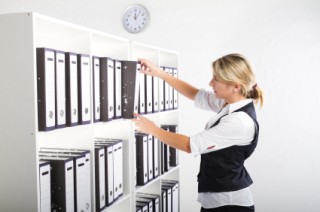One of the more frequent questions I receive from clients is, “What kind of records do I need to keep?” Some keep no records at all, some keep every last shred of paper that has passed their desk in the last 10 years. What’s the correct answer? Well, as with most guidance given by the IRS, that answer is grey. They state on their website: “Except in a few cases, the law does not require any special kind of records.” Not so helpful. Here is a list summarizing how I would advise one of my clients:
- Have an annual general ledger for the last 3 years of your summarized income and expenses, either in an accounting system such as QuickBooks or something as simple as an Excel spreadsheet.
- Keep bank and credit card statements that support the income and expenses summarized in your general ledger. If you can access these statements online, I see no need to stockpile paper statements.
- If your bank statements show images of your cancelled checks, those are sufficient to back up your cleared checks. If not, keep your check registers.
- Keep back-up that supports your income, whether it be monthly reports from your point-of-sale system or invoices you’ve issued for services. If you trust your technology, there is no need to print out copies of these items; you can always pull a report on demand if needed.
- You do not need to keep every single receipt and invoice you pay. For instance, when a transaction hits your bank account from your electric company, the nature of the expense is clear. The IRS doesn’t need to know how much energy you used for the month of October, those details aren’t relevant.
- Keep receipts for any purchases that could be disputable, for instance, if you spend a few hundred dollars at a home improvement store. This purchase could have been numerous small items for repairs, or it could have been a piece of equipment. Because each is treated differently for tax purposes, this detail is needed.
- Keep receipts and detailed records pertaining to any travel, meals, entertainment or gift expenses. Because there is so much abuse by taxpayers in these areas, you may need to substantiate the specific business reason for the expense (e.g. met Client A at Starbucks and purchased coffees for the two of you) or the expense may be disallowed. I suggest keeping an envelope with these receipts and just jotting down the business purpose on the receipt. Too easy.
- Maintain a spreadsheet or some other tracking method to track all of your business mileage, including the date, business purpose, and miles traveled. It is much harder to try to backtrack and recreate this in the event of an audit. Save yourself the headache and just track as you go.
- Keep employment records for at least 4 years. The IRS does actually offer some specific guidance what employment records to keep here.
- Hold on to any receipts or invoices pertaining to any asset purchases or major property improvements you make, as well as the associated depreciation records and any paperwork associated with the disposition of assets.
While this list is the minimum recordkeeping standard I would advise my clients to keep, it certainly won’t hurt you to keep more than that. If you are on the fence about certain records, hold on to them. The bottom line is you have to be comfortable with your recordkeeping system. Do what works for you!
